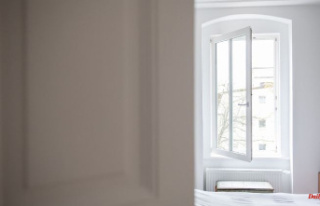People's trust in politics has suffered greatly in the recent past. The reasons are acting in the corona pandemic or now in the energy crisis. Federal President Frank-Walter Steinmeier wants to know more about it.
Neustrelitz (dpa/mv) - Against the background of ongoing protests against energy policy and growing doubts about democracy, Federal President Frank-Walter Steinmeier is seeking direct dialogue with citizens. From Tuesday he will be relocating his official residence from Berlin to Neustrelitz for three days. The small town in East Mecklenburg is the fourth stop in the "Local time Germany" series launched by Steinmeier at the beginning of the year. During the several-day stays in the province, he wanted to talk to people of all ages and social classes about current challenges, wishes and concerns, according to the Office of the Federal President.
At the start on Tuesday, after the welcome in the city hall, meetings with children and young people are planned. At a "controversial coffee table" on Wednesday, Steinmeier wants to discuss topics such as protest culture, the consequences of the energy crisis and civic engagement with the participants. Neustrelitz has been the seat of the nationwide voluntary foundation since 2020. Among other things, a round of talks with medium-sized companies on energy security is planned for Thursday. In addition, walks through the city and visits to institutions provide opportunities for spontaneous conversations. Also on Thursday, the Federal President will receive the Slovenian President Borut Pahor with military honors on the city's market square.
Before Neustrelitz, Steinmeier had already paid several days' visits to Altenburg in Thuringia, Quedlinburg in Saxony-Anhalt and Rottweil in Baden-Württemberg. At the "local time Neustrelitz", the Federal President will again take a lot of time for encounters. He wants to see how people see their everyday life and the country in view of the ongoing war against Ukraine, dramatically rising prices and after more than two years of the corona pandemic. "He wants to get a clearer impression of what drives people and also motivates them to take responsibility, and what this in turn can mean for political decision-makers," says the website of the Federal President's Office about the visit format.
A survey commissioned by the federal government and published at the end of September immediately before the 32nd anniversary of German unity revealed growing resentment, especially in eastern Germany. According to this, only 39 percent of those surveyed are satisfied with the way democracy works in Germany. Two years earlier it was 48 percent. In West Germany, satisfaction with democracy fell from 65 to 59 percent. The "Germany Monitor" survey is part of the annual report that the federal government's commissioner for Eastern Europe regularly submits. In the most recent survey, 63 percent of respondents in the East expressed the opinion that East Germans are often treated as second-class citizens.












